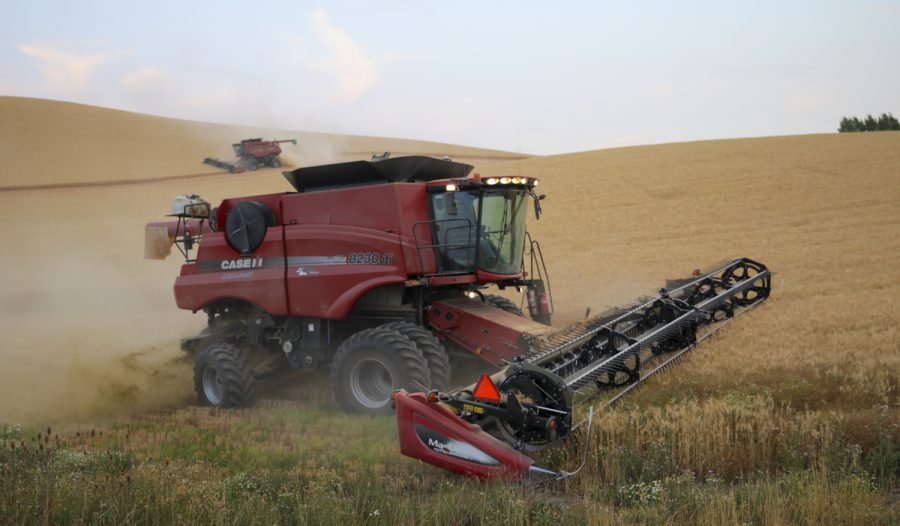WSU extension office helps farmers overcome suicide, mental health issues
Office received $7 million grant to develop suicide hotline for agricultural workers
BENJAMIN MICHAELIS | DAILY EVERGREEN FILE
From 2016 to 2019, three suicides occurred among members of Skagit County’s agricultural industry.
October 6, 2020
When Bob Engle witnessed his father experience clinical depression, Engle knew he did not want to venture on the same road his father walked on.
“It’s just my own recognition to not let depression ruin my life,” said Engle, a farmer from Whidbey Island.
This year has been difficult because of the pandemic, he said. On top of that, he and his family lost their family farm that has been around since the 1800s. He said he experienced a lot of stress and “a lot of dark days.”
But with the help of the WSU Skagit County Extension Office’s farm stress and farmer suicide prevention efforts, Engle and other agricultural workers are receiving the support they need. Those efforts are led by Don McMoran, director of WSU’s Skagit County Extension Office.
Farmer suicide prevention is an issue that has been of interest to McMoran since his sophomore year in college. At the time, a worker on his family’s farm died by suicide, he said. It was not until 2019, however, that he became more involved in farmer suicide prevention efforts.
From 2016 to 2019, three suicides occurred in Skagit County’s agricultural industry, McMoran said. The third suicide incident affected him personally.
“The third one was a gentleman that I worked with when I worked at the Skagit Conservation District,” he said. “It really hit me hard because I knew him personally.”
McMoran said he and his staff want to address suicide in the agricultural industry. Their efforts are conducted under the Western Region Agricultural Stress Assistance Program. The ongoing pilot program began in 2019 when the state legislature developed a task force focused on suicides in the agricultural industry.
“We took on some funding to be the first agricultural suicide prevention pilot program in the state of Washington,” he said.
The program conducts suicide prevention workshops and distributes educational flyers to engage people in talking about suicide, McMoran said. With a $7.18 million Farm and Ranch Stress Assistance Network grant, the program will expand its service to 13 states in the west and four U.S. territories.
McMoran said the FRSAN grant came from the U.S. Department of Agriculture’s National Institute of Food and Agriculture. The program will use the grant money to develop a suicide hotline for agricultural workers. Two employees will handle the hotline and take calls concerning farm stress and suicide prevention.
“We’re excited about that because we realize that most farmers aren’t going to call a national suicide hotline,” he said, “and if they did, they probably aren’t going to have an operator on the other end that understands the plight of the farmer and everything the American farmer is under.”
Engle said the program connects agricultural workers and their families with people who can understand the challenges they face. Farming is not only a job, he said, but a lifestyle that puts farmers in many difficult situations.
Talking to somebody who can understand is important, he said. Engle’s father spent years fighting his depression. After finding a therapist who could relate to his experiences, Engle’s dad was able to fully express himself.
“Farmers are in a different world. We work by ourselves all day, every day,” he said. “Sun up through sundown and sometimes long hours and even longer — finding someone who can comprehend that and just be a listening ear … is really important.”
Farmers are independent people who do not like to admit when they are struggling, he said. This makes it challenging for them to receive the help they need.
“Us, as farmers, you’re getting beat down — we just don’t like to admit it. You were never supposed to show your fears,” Engle said. “That’s what you were always taught growing up.”
Talking about suicide and other mental health issues is harder for men, he said, because men are raised to not show any sign of weakness. Although this is gradually changing, Engle said this is still an issue that needs to be addressed.
“As a society as a whole, we’ve done a huge injustice that way,” he said. “Men just have as many problems, but we were taught to not talk about it.”
Not knowing who the program has saved makes the job emotionally difficult, McMoran said. However, seeing farmers change the way they perceive and approach mental health makes the job rewarding.
“Just getting over some of those stigmas and being able to talk about the subject has really helped us grow as a community,” McMoran said.










